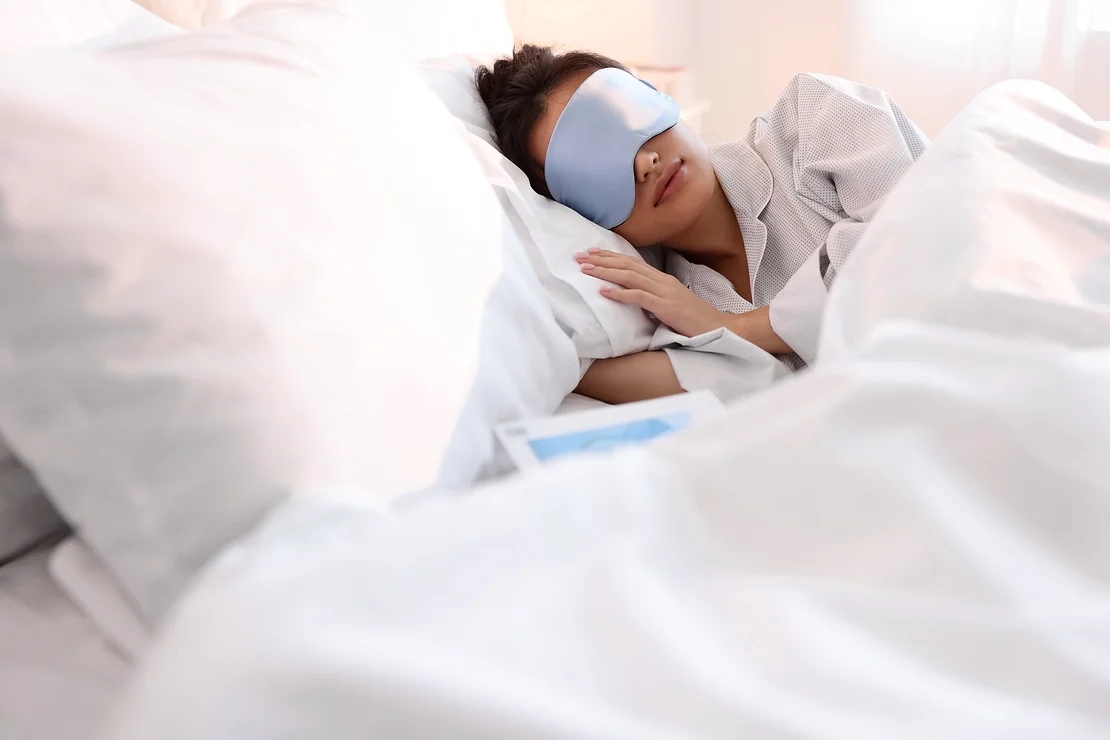What Do You Need to Know About Sleep?
 Photo by Unknown
Photo by Unknown
Sleep is a process that every individual needs to survive as it is a time of rest for our body to repair itself and grow. Although sleep is loved, yet also lacked, by most college students, many do not truly understand how it works and its significance to our health. Here, I would like to delve a bit into what sleep is, why we need it, and how much we should aim to get.
How does sleep work?
Your internal body clock determines whether you are conscious or not, which regulates a cycle called the circadian rhythm. Your circadian rhythm dictates behavioural and physical changes, along with other functions that follow a 24-hour cycle. One of its most important functions being the sleep-wake cycle. The circadian clock (internal body clock) is controlled by the Suprachiasmatic Nucleus (SCN): cells that reside in the hypothalamus in the brain that react to the light and to the dark. Because of this, circadian rhythm is tied to our mornings and our nights. A properly functioning and aligned circadian rhythm can promote a proper and satisfying rest.
Light, darkness, and sleep schedules have all been seen to have a lasting impact on the regulation of these internal clocks. When our eyes see light in the morning, our retinas send a signal to the SCN that leads to hormone production. Our body temperature rises and cortisol, a stress hormone, is released leading to an increase in alertness and for us to wake up. When it gets darker, our body temperature lowers and melatonin, another hormone, is released, leading us to get ready to sleep. Interference with this process, such as blue light from phones, can harm our sleep cycle.
There are 4 main stages of the sleep cycle.
NREM stage 1:
This is the beginning of the sleep cycle with a transition from being awake to light sleep. NREM stands for non-REM sleep, with REM meaning rapid eye movement as your eyes tend to move around during REM sleep without sending visual images to the brain. Heartbeat, muscles and breathing begin to relax during this stage. Brain waves begin to slow down.
NREM stage 2:
This is light sleep that is now entering deeper sleep. The heartbeat, muscles and breathing begin to relax even more during this stage. This is the sleep cycle that individuals tend to spend the most time in during repeated cycles. Brain waves slow down even more with brief peaks.
NREM stage 3:
This stage is one of the most important stages, rewarding individuals with a satisfying rest. During the first half of the night, this stage tends to occur in long periods. Heartbeat and breathing levels reach one of their lowest levels. Muscles are very relaxed and brain waves are even slower than before.
REM sleep:
This stage happens about 90 minutes after sleep. The eyes move rapidly and the brain waves are similar to when being awake. Breathing, heart rate, and blood pressure increases. Dreaming may occur and the muscles may become paralyzed, so an individual cannot act out their dreams. As one ages, less time is spent in the REM stage.
Why do you need proper sleep?
Sleep is essential for our day to day function, but also has long term effects. A great night’s rest can allow an individual to stay focused and allow the brain to pave memory and learning pathways. We can even create stronger connections between experiences and our feelings. It has as well been seen that sleep can help keep the immune system strong allowing you to fight off infection. Lastly and one of the most important, during sleep the body can repair itself and grow. There is no shortage of the beneficial aspects of sleep, which is why it is important to make it a priority, especially as young students.
How does caffeine affect your sleep?
Many of us rely on coffee or energy drinks to get through the day, but not many of us know how caffeine affects us and how we can get stuck in a never-ending loop. To understand how caffeine works, it is important to understand the role adenosine plays in the body. Our food contains glucose, a sugar that when digested can break down into ATP: adenosine triphosphate. ATP is simply used for energy, and when it is used up, the adenosine accumulates in the bloodstream causing one to feel drowsy. We feel as if we have to sleep to rebuild our energy deposits because we have run out. Caffeine blocks adenosine from making us feel drowsy. When the caffeine wears off, the adenosine causes drowsiness once again. Caffeine can impact sleep by causing you to be stuck in a reinforcing cycle. When drinking beverages high in caffeine, adenosine tends to accumulate, and while it normally should dissipate during sleep, because of the caffeine, it is still high in levels when you wake up. This makes you feel groggy, causing you to want even more caffeine. This makes you feel tired all day and have an unsatisfying sleep.
How much sleep should you get for your age group?
The amount of sleep you need differs not only by age, but also from individual to individual. Although, there are recommendations you can follow.
Babies: 16-18 hours/day
Children and teens: 9.5 hours/night
Adults: 7-9 hours/night
> 60: 7-9 hours/night
According to the recommendations above, the age group of most undergraduate college students should be about 7-9 hours a night which unfortunately most of us are not getting. While it is hard to prioritize sleep on top of everything else that students have to do, a good night’s rest is more important than you may have initially believed.
